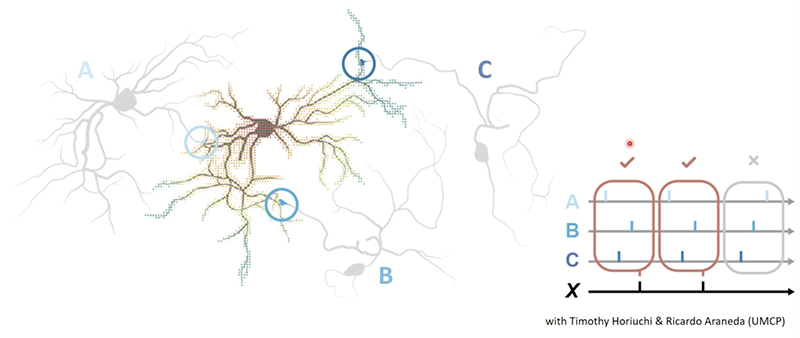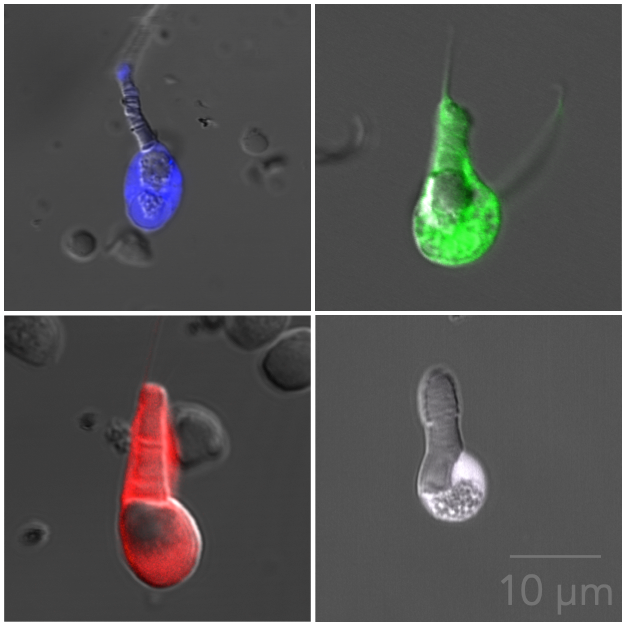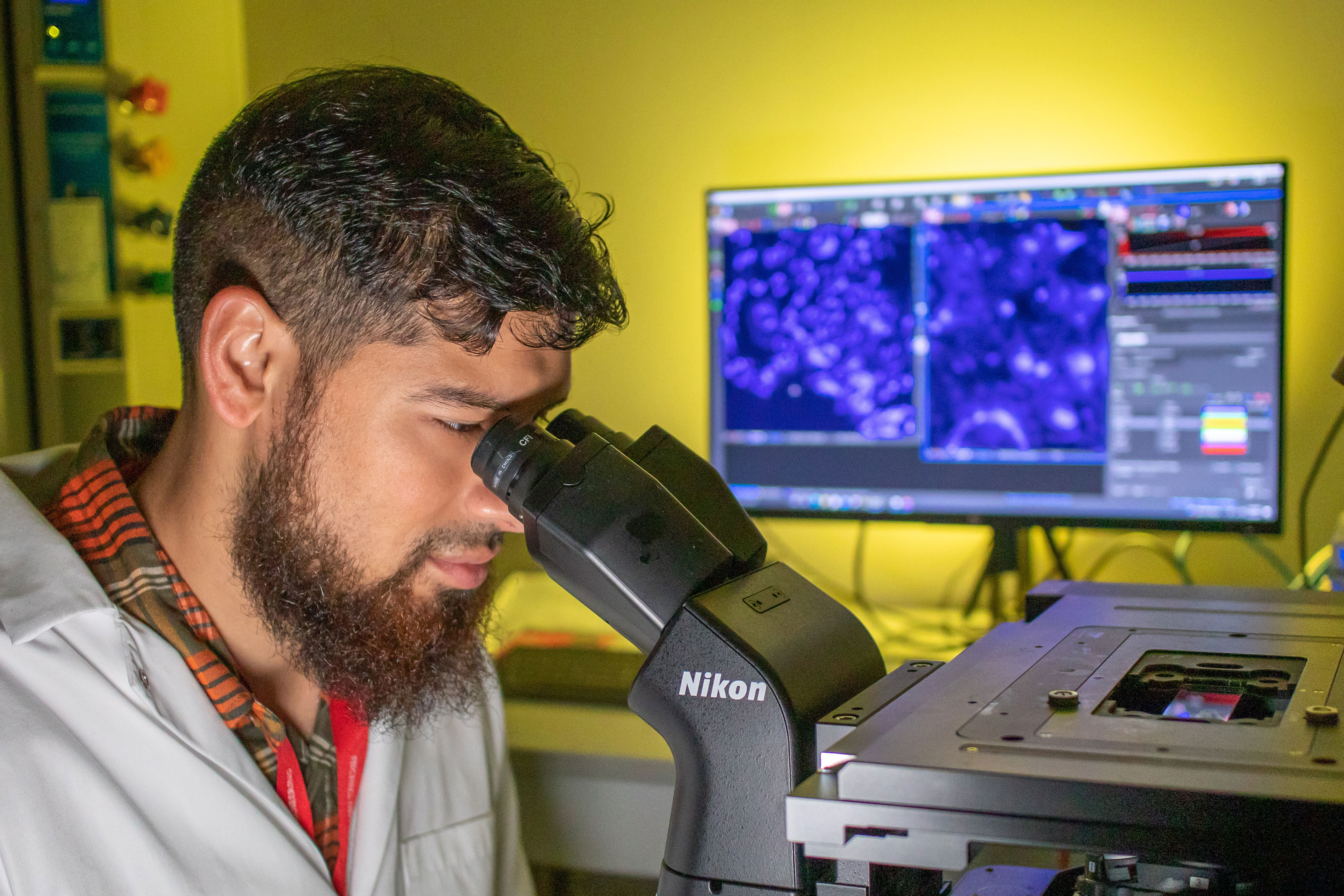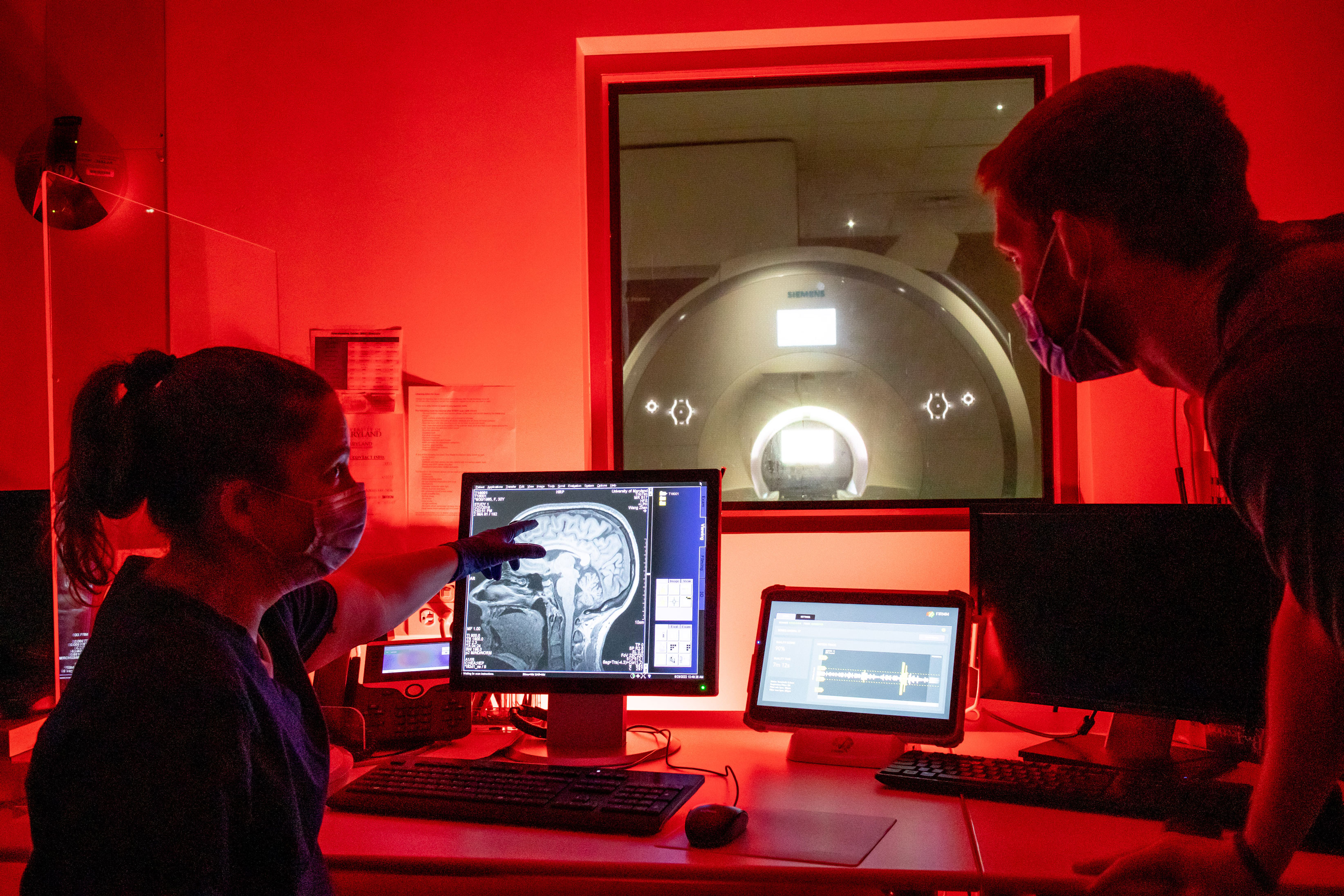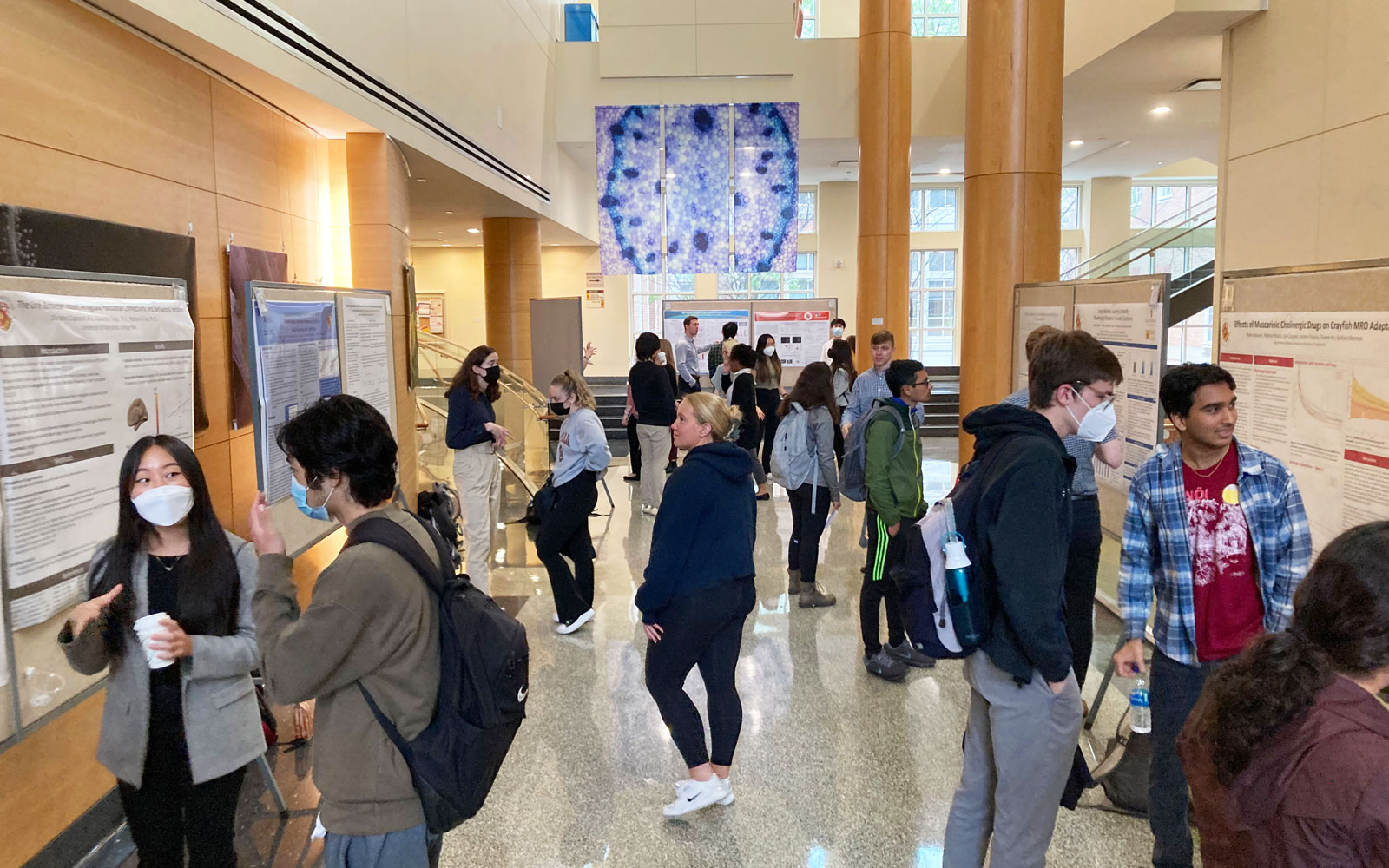News Story
Shamma joins former student Mounya Elhilali in new MURI soundscape project
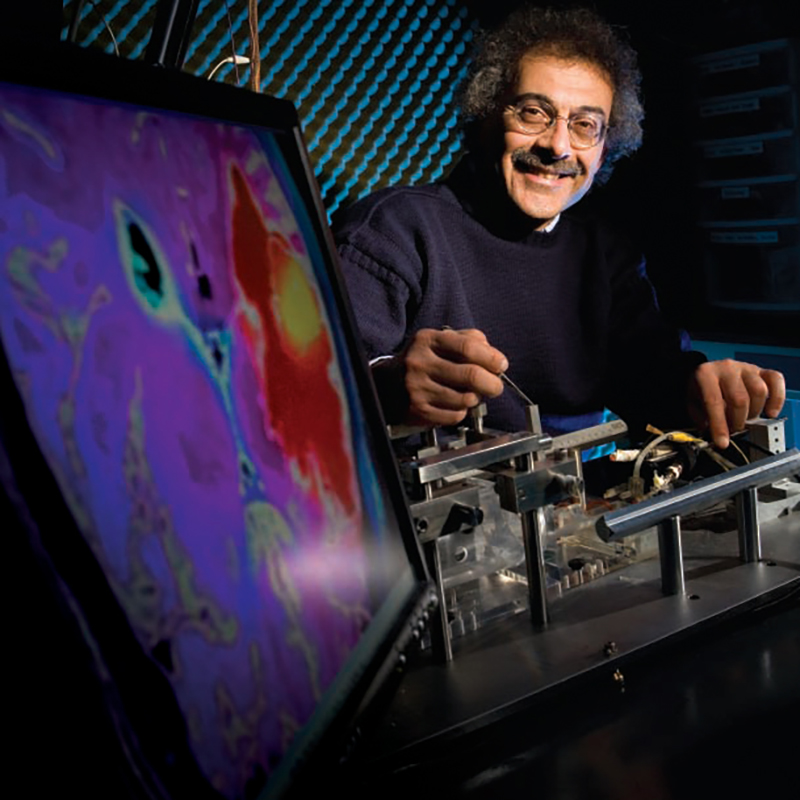
Professor Shihab Shamma (ECE/ISR) is a co-principal investigator on a 2022 Department of Defense Multidisciplinary University Research Initiative (MURI), “Learning to mine a soundscape.” His former student and postdoctoral researcher, Mounya Elhilali (ECE Ph.D. 2004; MS 2003), a professor in the Electrical and Computer Engineering department at Johns Hopkins University (JHU), is the principal investigator for the overall project.
Professor Ramani Duraiswami (CS/UMIACS) is also participating as a co-PI on the project. In addition to the University of Maryland and JHU, the research includes colleagues from Carnegie Mellon University.
“Learning to mine a soundscape” falls within the larger “Learning from Hearing” MURI topic, and is sponsored by the Office of Naval Research. As humans, animals and machines navigate and interact with their environments, they can infer a multitude of information from the acoustic signals that they receive and integrate it with other modalities to make sense of the changing surroundings and adapt their behaviors. Acoustic signals not only convey information about sound events but also provide information about the physical structure of the environment and context. The inference of objects and events from sounds is informed by learned representations that impact action selection. This project will aim to identify the nature and role of these representations in guiding perception and behavior in humans, animals, and models.Professor Ramani Duraiswami (CS/UMIACS) is also participating as a co-PI on the project. In addition to the University of Maryland and JHU, the research includes colleagues from Carnegie Mellon University.
The project is one of 28 five-year basic research MURIs to 63 U.S. academic institutions announced by the Department of Defense on March 3, for a total of $195 million in Fiscal Year 2022 funding.
“By supporting teams whose members have diverse sets of expertise, the MURI program acknowledges that the complexities of modern science and engineering challenges often intersect more than one discipline and require creative and diverse approaches to tackle these problems,” said Dr. Bindu Nair, Director, Basic Research Office, Office of the Undersecretary of Defense for Research and Engineering (OUSD (R&E). “This cross-fertilization of ideas can accelerate research progress to enable more rapid R&D breakthroughs and hasten the transition of basic research findings to practical application.”
Published March 24, 2022
